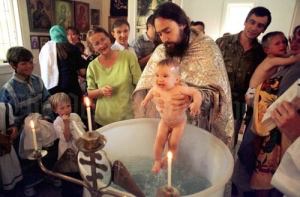Acts 16 tells two accounts of Philippians being saved under the preaching of Paul. First is a woman named Lydia:
One who heard us was a woman named Lydia, from the city of Thyatira, a seller of purple goods, who was a worshiper of God. The Lord opened her heart to pay attention to what was said by Paul. And after she was baptized, and her household as well, she urged us, saying, “If you have judged me to be faithful to the Lord, come to my house and stay.” And she prevailed upon us. (Acts 16:14-15 ESV)
And again, of a jailor:
Then he brought them out and said, “Sirs, what must I do to be saved?” And they said, “Believe in the Lord Jesus, and you will be saved, you and your household.” And they spoke the word of the Lord to him and to all who were in his house. And he took them the same hour of the night and washed their wounds; and he was baptized at once, he and all his family. Then he brought them up into his house and set food before them. And he rejoiced along with his entire household that he had believed in God. (Acts 16:30-34 ESV)
Both of these accounts tell of someone who comes to believe in the gospel, and subsequently a baptism follows. Both stories, however, also seem to leave some degree of ambiguity over who precisely who believes and who is saved.
In the former passage, Luke tells us that the Lord opened Lydia's heart to pay attention to what was said by Paul. After this happened, Lydia was baptized--this much seems clear. By then, we encounter the phrase "and her household as well." Though there is no mention of the belief of her whole household, this phrase seems to imply that the whole household is baptized. After saying this, Luke switches again to the singular "If you have judged me to be faithful to the Lord, come to my house and stay", ostensibly asking to be judged (by Paul and Luke) on the basis of only her faith.
Is this phrase "and her household as well" referring to baptism only, or to the Lord opening their heart as well? Modern-day Christian baptism is typically done for the one who becomes saved, but if this phrase refers only to the household being baptized (and not their faith), does this make Lydia's faith sufficient for the baptism of the whole house? Does it mean that her whole house is saved?
Again in the account of the jailor, a similar pattern is encountered. I will highlight the pronouns referring to the jailor and his house:
And they spoke the word of the Lord to him and to all who were in his house. And he took them the same hour of the night and washed their wounds; and he was baptized at once, he and all his family. Then he brought them up into his house and set food before them. And he rejoiced along with his entire household that he had believed in God.
Again, there is this strange switching between he (the jailor) and they (those in the house). What I see, however, is while Luke mentions that he and his family were baptized, and that he and his family rejoiced, he again only mentions that he (the jailor) "had believed in God".
What is going on here? Are we to understand these two passages to say that Paul would baptize entire households on the basis of the belief of one member? Or do we presume that, if the rest of the household is baptized, they must have made in unrecorded conversion?

